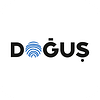Working within an engaging, hands-on learning environment, and guided by an expert instructor, this 3-day course is designed for students of any background looking to get started with Python programming, learn core Python programming concepts, and write effective Python code using the latest features and techniques. It’s also suitable for existing programmers and developers with an interest in RPA/AI development, or data science related development with Python as the main scripting language. Other appropriate job roles include:
- System Administrators
- Network Administrators and Engineers
- DevOps Engineers
- Back-end developers
- Front-end developers
Is This The Right Course?
A basic familiarity with any programming or scripting language is helpful, but not essential.
Who Should Attend?
This course is an appropriate introduction to students of any background looking to get started with Python core concepts and learn fundamental programming.
Programmers/Developers who aspire to shift their career towards RPA/AI development, Data Science related project development that majorly uses Python as the scripting language
- System Administrators
- Network Administrators and Engineers
- DevOps Engineers
- Back-end developers
- Front-end developers
























